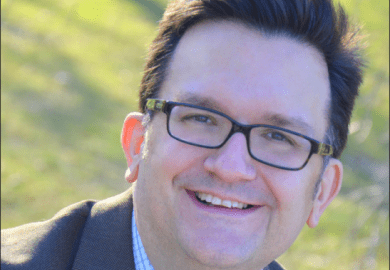"There are serious political questions around who decides what our national heritage is," says Evelyn Welch, professor of Renaissance studies and academic dean for arts at Queen Mary, University of London.
"Who decides what gets preserved? How do we read the past when there is no written text? And what happens in today's digital culture when performances, sounds, images and objects circulate so swiftly around the globe? Does the British Library preserve every blog? These are absolutely key questions."
And these are the questions that Professor Welch is seeking to help answer as the director of the Arts and Humanities Research Council's £5.5 million strategic research programme Beyond Text: Performances, Sounds, Images, Objects.
The programme is intended to help inform policy related to our cultural and creative past and future - and to foster public understanding of the many forms of creativity beyond simply words on a page.
Although the programme was announced last October, it has now been officially launched with the confirmation of the winners of the first batches of cash to be awarded under the programme (see grant winners opposite).
Under this first tranche, 15 academics will share £387,000 to run workshops and set up networks under the programme. In one of the first projects, legal researchers will work with dancers to identify the point of "originality" in their work and to ask if current copyright legislation is still workable.
In addition, experts from Turkey and Georgia will visit academics in the UK to examine how inscriptions become artworks in medieval texts. Six PhD studentships have also been awarded.
Later this year, there will be another announcement of those successful in securing a slice of £3 million in grants for large-scale collaborative research. Of 121 applications, 25 projects have been shortlisted.
Beyond that, the rest of the funding for the programme, which is scheduled to finish in 2012, is still up for grabs. "Now is the time to start thinking about applying for it - finding partners, putting proposals together and talking to us about it," Professor Welch said.
The programme intends to invite bids for small research grants in October with £1 million set aside for the call, Professor Welch said. The grants will be worth between £20,000 and £150,000 each and are intended to fund small-scale collaborative projects lasting about 18 months.
"They are particularly targeted at collaborations between people who practise and people who study practice. We (also) want to ensure that people who work on the past as well as the present are represented," she said.
There is also funding for students under the scheme. In autumn, the programme will invite bids for small grants of up to £2,000 for PhD students wishing to undertake their own Beyond Text-related initiatives: these could take the form of workshops, seminars or work with specific experts. Exactly how much money will be committed is yet to be determined.
"They can bid for this money in their own right - and that has never been possible before through a strategic programme. We want to help postgraduates and scholars in the early stages of their careers to feel that they have a range of choices as to how they work," Professor Welch said.
She stressed that what was so different about the programme, which has been two years in development, is that although it is strategic (with the AHRC setting the parameters), the idea for it came from the "bottom up". Researchers themselves suggested it through a consultation process with the AHRC.
"The AHRC said we are about to do all these strategic initiatives but is there anything we are missing that you think is important? The programme is crafted and constructed from those 160-plus responses. It certainly delivers all kinds of policy agendas, but they are set by historians and professionals in museums rather than the Treasury."
One academic to win funding for a workshop is Sally Harper, a Welsh musicologist from Bangor University. She will conduct workshops with musicians and literary scholars from Wales, Scotland and Ireland to recreate performances of medieval poetry.
"We all appreciate this poetry on the page, but it was intended for performance and we have lost that oral dimension," she said. "The purpose of the workshops is to look at different ways we might reinstate the accompaniment."
She said the final result would be performed at a concert that would later be uploaded to a website for all to enjoy.
See: www.beyondtext.ac.uk.
Register to continue
Why register?
- Registration is free and only takes a moment
- Once registered, you can read 3 articles a month
- Sign up for our newsletter
Subscribe
Or subscribe for unlimited access to:
- Unlimited access to news, views, insights & reviews
- Digital editions
- Digital access to THE’s university and college rankings analysis
Already registered or a current subscriber? Login



